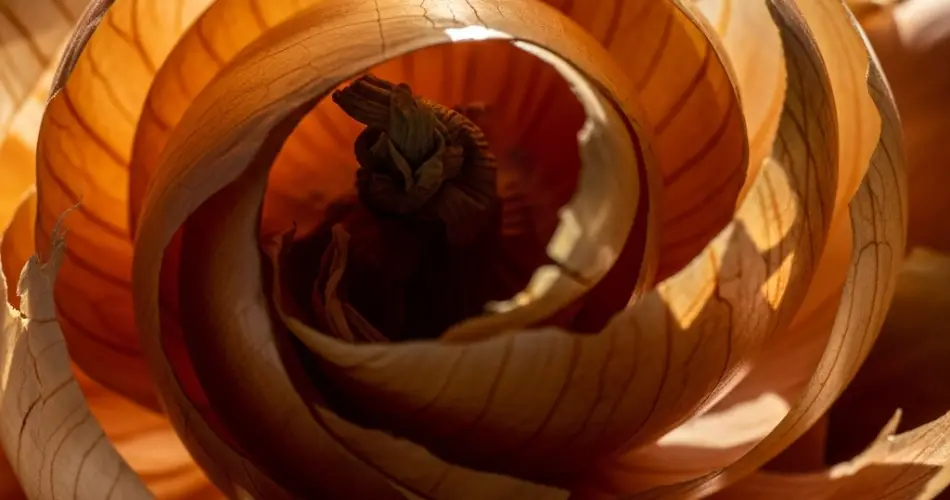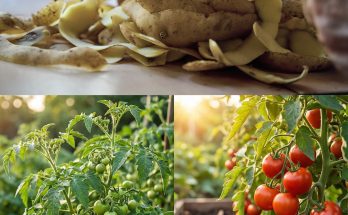Onions are a staple in the kitchen, but they also have surprising benefits in the garden. Packed with sulfur, potassium, phosphorus, and other micronutrients, onions can be transformed into a powerful natural fertilizer that promotes plant health and deters pests. Using onion-based fertilizer is a smart, eco-friendly way to nourish your plants while minimizing chemical inputs. Whether you’re growing vegetables, flowers, or herbs, incorporating onions into your garden care routine can lead to stronger growth, better yields, and improved resistance to disease.
Here’s how you can make and use onion-based fertilizer to give your garden a natural boost.
Why Use Onions in the Garden?
Onions contain sulfur compounds that are not only beneficial for plant development but also act as natural pest deterrents. Sulfur helps with enzyme formation and chlorophyll production, while potassium strengthens plant cell walls and improves drought resistance. When onions are broken down into a liquid or composted form, these nutrients become accessible to plants, enriching the soil and enhancing plant resilience.
In addition to providing nutrition, onion-based sprays or compost can help deter common pests such as aphids, caterpillars, and spider mites, thanks to their strong scent and antimicrobial properties.
How to Make Onion Fertilizer at Home
There are several simple methods to create onion-based fertilizer using kitchen scraps or leftover onions. The most popular and effective is the onion water infusion or onion tea method.
Ingredients:
-
2–3 medium onion bulbs or a handful of onion peels
-
1 liter (about 4 cups) of water
-
Optional: garlic cloves or banana peels for added nutrients
Instructions:
-
-
Chop or crush the onions: Cut the onions into small pieces to release their juices. If using peels, you can leave them whole or tear them into strips.
-
Soak in water: Place the onion pieces or peels in a bucket or large jar and add the water. Let the mixture steep for 24 to 48 hours. The longer you soak, the stronger the infusion.
-
-
Strain the mixture: After steeping, strain the liquid to remove solid parts. This prevents clogging your spray bottle or watering can.
-
Store and use: Pour the onion water into a spray bottle or watering container. Use immediately or store in the refrigerator for up to one week.
How to Apply Onion Fertilizer
Depending on your goal—feeding the plants or repelling pests—you can apply the onion fertilizer in different ways.
For Soil Feeding:
-
-
Pour the onion solution directly at the base of your plants to allow nutrients to be absorbed by the roots.
-
Apply every 10–14 days for consistent growth support, especially during the active growing season.
-
For Pest Repellent Spray:
-
Mist the onion water directly onto plant leaves, especially the undersides where pests often hide.
-
Use early in the morning or late afternoon to avoid leaf burn.
-
Repeat weekly or after heavy rain for ongoing protection.
Be cautious not to overuse the spray on very young or sensitive plants. Always test on a small area first to ensure there are no adverse reactions.
Which Plants Benefit Most from Onion Fertilizer?
Most garden plants can benefit from the gentle nutrients in onion fertilizer. It’s particularly effective for:
-
-
Leafy greens like spinach, kale, and lettuce
-
Tomatoes and peppers, which need consistent potassium and sulfur
-
Root vegetables such as carrots, beets, and potatoes
-
-
Fruit-bearing plants including cucumbers and eggplants
-
Ornamentals and flowering plants, which can show more vibrant blooms with regular feeding
Avoid using onion fertilizer near legumes like beans and peas, which may be sensitive to sulfur-heavy feeds.
Additional Onion Uses in the Garden
If you have onion scraps, don’t toss them out! Here are a few other ways to use them in your garden:
-
-
Compost additive: Onion peels decompose well and add valuable micronutrients to your compost pile.
-
-
Mulch enhancer: Mix onion skins into your mulch layer to release nutrients slowly over time.
-
Companion planting: Growing onions near carrots, tomatoes, and lettuce can help deter insect pests naturally.
Tips and Precautions
-
-
Avoid overuse: Onion-based fertilizer is mild, but like any amendment, moderation is key. Overuse could affect soil balance or cause mild plant stress.
-
-
-
Use fresh solutions: Onion water can become foul-smelling if left too long. Make small batches and use them within a week.
-
Rotate treatments: Combine onion fertilizer with other natural feeds like compost tea or banana peel water to provide a full spectrum of nutrients.
-
Avoid onion-based sprays on hot, sunny days: To prevent leaf damage, apply during cooler hours.
-
Final Thoughts
Onion-based fertilizer is an easy and sustainable way to nourish your garden while naturally protecting it from pests. By reusing kitchen scraps and creating simple infusions, you reduce waste and boost plant health at the same time. Whether you’re looking to feed your tomatoes, help your leafy greens thrive, or keep pests off your flowers, onion fertilizer can be a powerful, natural ally in your gardening routine. Give it a try and watch your garden respond with vibrant, robust growth.


